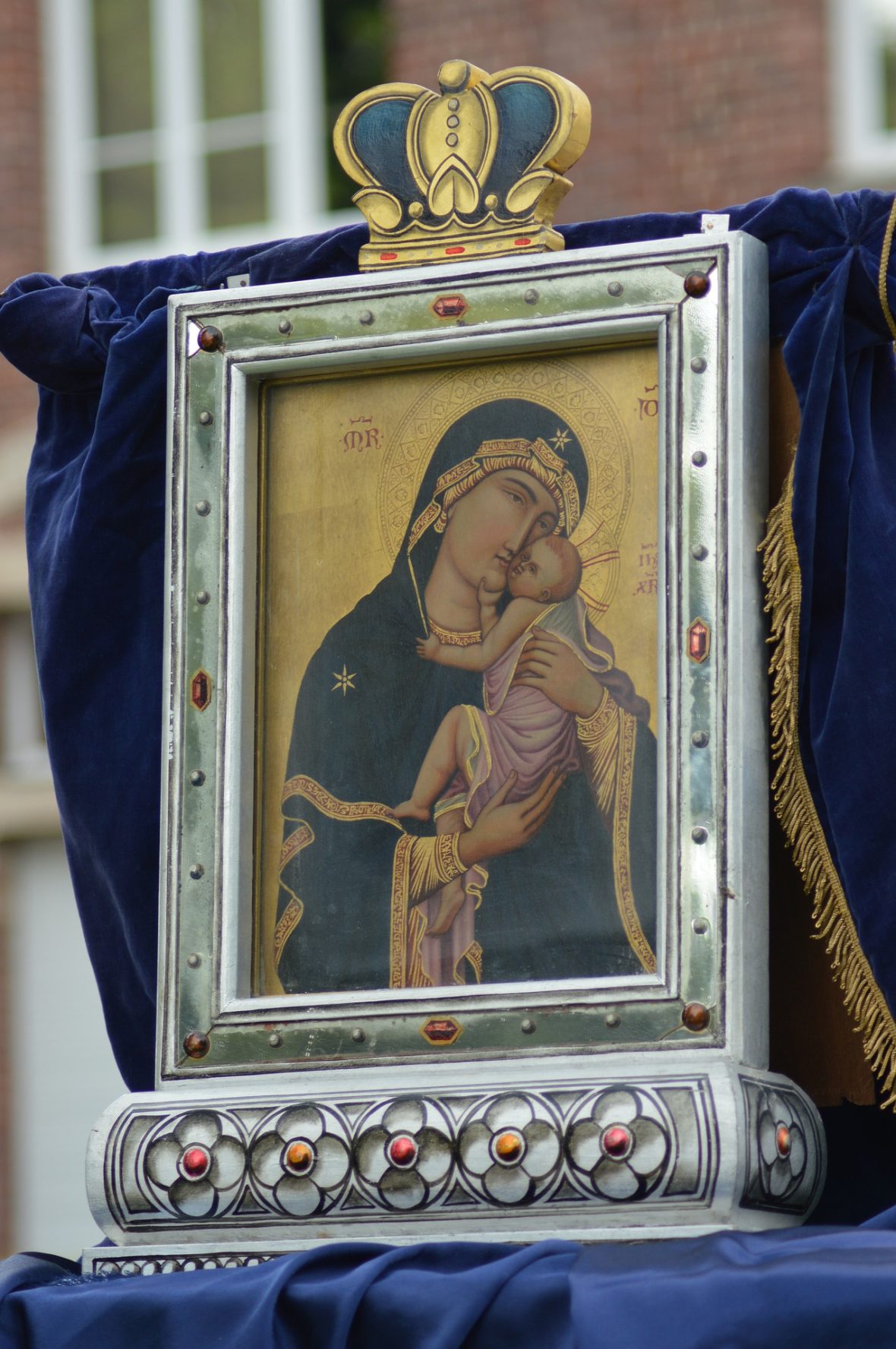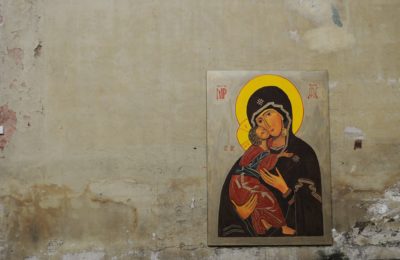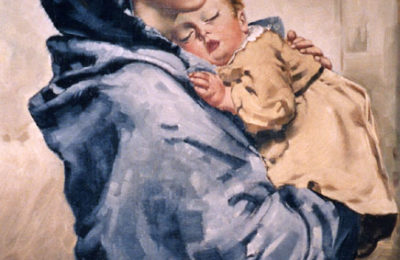Today, in an effort to learn more about the Most Holy Blessed Virgin Mary, we are continuing to read small excerpts from The Blessed Virgin Mary by St. Alphonsus Liguori; specifically, we continue to delve into the first chapter where St. Alphonsus states that:
The Eternal Father made Jesus Christ the King of justice, and consequently universal Judge of the world: and therefore the Royal Prophet sings: “Give to the King Thy judgement, O God, and to the King’s Son They justice.” Here a learned interpreter takes up the sentence, and says: “O Lord, Though hast given justice to Thy Son, because Thou hast given mercy to the King’s Mother. And, on this subject, St. Bonaventure, paraphrasing the words of David, thus interprets them: “Give to the King Thy judgment, O God, and Thy mercy to the Queen His Mother.” Ernest, Archbishop of Prague, also remarks, “that the Eternal Father gave the office of judge and avenger to the Son, and that of showing mercy and relieving the necessitous to the Mother.” This was foretold by the prophet David himself; for he says that God (so to speak) consecrated Mary Queen of mercy, anointing her with the oil of gladness.” In order that we miserable children of Adam might rejoice, remembering that in heaven we have this great Queen, overflowing with the unction of mercy and compassion towards us; and thus we can say with St. Bonaventure, “O Mary, thou art full of the unction of mercy, and of the oil of compassion;” therefore God has anointed thee with the oil of gladness…
But perhaps we may fear that Mary would not deign to interpose for some sinners, because they are so overloaded with crimes? Or perhaps we ought to be overawed at the majesty and holiness of this great Queen? “No,” says St. Gregory VII: “for the higher and more holy she is the greater is her sweetness and compassion towards sinners who have recourse to her with the desire to amend their lives.” Kings and queens, with their ostentation of majesty, inspire terror, and cause their subjects to fear to approach them: but what fear, says St. Bernard, can the miserable have to approach this Queen of mercy for she inspires no terror, and shows no severity, to those who to her, but is all sweetness and gentleness. “Why should human frailty fear to go to Mary? In her there is no austerity, nothing terrible: she is all sweetness, offering milk and wool to all.” Mary is not only willing to give, but she herself offers milk and wool to all: the milk of mercy to animate our confidence, and the wool of her protection against the thunderbolts of divine justice. “Say not, O holy Virgin,” exclaims St. George of Nicomedia, “that thou canst not assist us on account of the number of our sins, for thy power and thy compassion are such that no number of sins, however great, can outweigh them. Nothing resists thy power, for our common Creator, honoring thee as His Mother, considers thy glory as His own;” and the Son, “exulting in it it, fulfils thy petition as if He were paying a debt; “meaning thereby that although Mary is under an infinite obligation to the Son for having chosen her to be His Mother, yet it cannot be denied that the Son is under great obligation to her for having given Him His humanity; and therefor Jesus, to pay, as it were, what He owes to Mary, and glorying in her glory, honors her in a special manner by listening to and granting all her petitions.”
How great, then, should be our confidence in this Queen, knowing her great power with God, and that she is so rich and full of mercy that there is no one living on the earth who does not partake of her compassion and favor. This was revealed by our blessed Lady herself to St. Bridget, saying, “I am the Queen of heaven and the Mother of mercy; I am the joy of the just, and the door through which sinners are brought to God. There is no sinner on earth so accursed as to be deprived of my mercy; for all, if they receive nothing else through my intercession, receive the grace of being less tempted by the devils than they would otherwise have been.” “No one,” she adds, “unless the irrevocable sentence has been pronounced” (that is, the one pronounced on the damned), “is so cast off by God that he will not return to Him, and enjoy His mercy, if he invokes my aid.” “I am called by all the Mother of mercy, and truly the mercy of my Son towards men has made me thus merciful towards them:” and she concludes by saying, ” And therefore miserable will he be, and miserable will he be to all eternity, who, in this life, having it in his power to invoke me, who am so compassionate to all, and so desirous to assist sinners, is miserable enough not to invoke me, and so is damned.”
Let us, then, have recourse, and always have recourse, to this most sweet Queen, if we would be certain of salvation; and if we are alarmed and disheartened at the sight of our sins, let us remember that it is in order to save the greatest and most abandoned sinners, who recommend themselves to her, that Mary is made the Queen of mercy. Such have to be her crown in heaven; according to the words addressed to her by her divine Spouse: “Come from Libanus, my spouse; come from Libanus, come; thou shalt be crowned;… from the dens of the lions from the mountains of the leopards.” And what are these dens of beasts but miserable sinners, whose souls have become the home of sin, the most frightful monster that can be found? “With such souls,” says the Abbot Rupert, addressing our blessed Lady, “saved by thy means, O great Queen Mary, wilt though be crowned in heaven; for their salvation will form a diadem worthy of… a Queen of mercy.” (end of quote from St. Alphonsus Liguori)
Hail Mary!
I was sent a link (thank you, A!) to the following Marian talk from Fr. Ripperberger which is posted on the Sensus Fidelium channel. I think you will all enjoy learning more about Our Lady through this priest. The title of the talk is Mother of Fair Love, link.
May you have a good day.
~SCF






